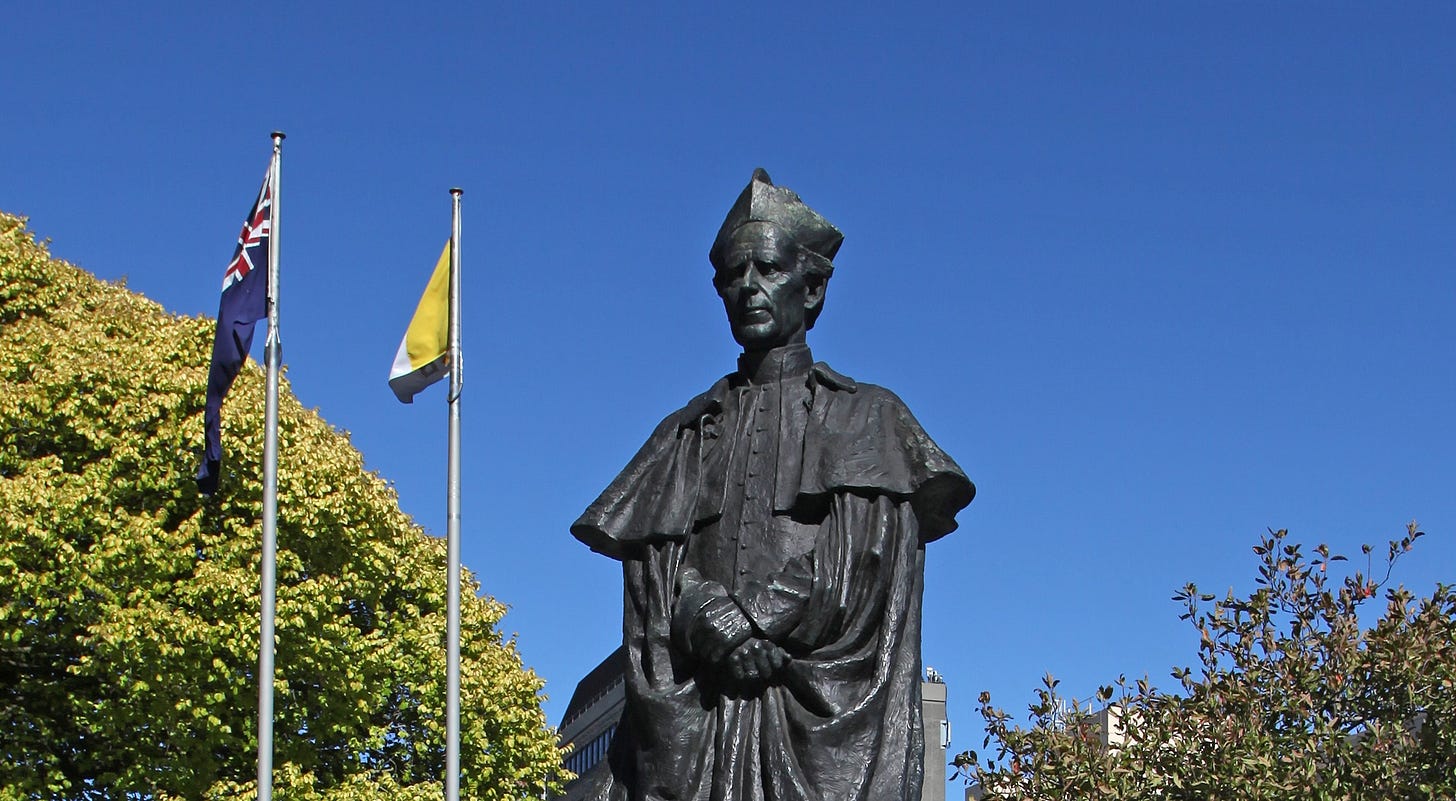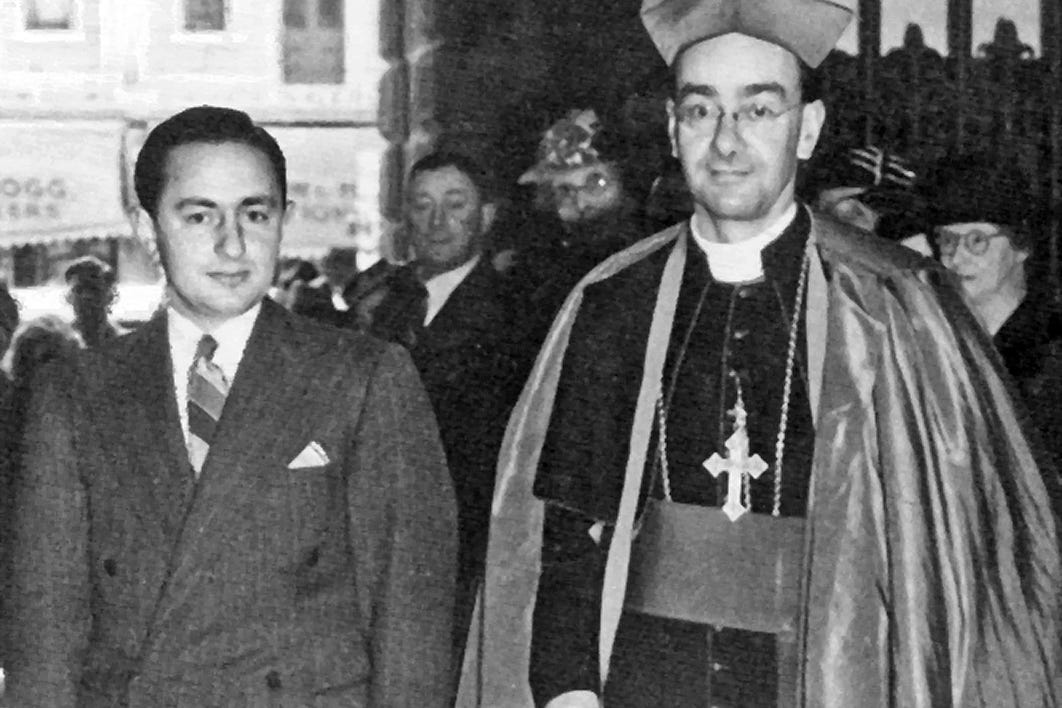Article originally written and published by Dr. Ian Spry QC, editor of Australia’s original National Observer, in Autumn 2004.
This biography of Archbiship Mannix by Michael Gilchrist (who is the editor of AD2000) is of general interest. Not only was Mannix the most influential church leader in Australia's history, but he was also an important leader of the Irish Catholic community and a pro-Irish, anti-British polemicist with wide influence; and he also emerged after the Second World War as the leading anti-Communist influence in the Catholic Church, without whom there would not have been a split in the Australian Labor Party giving rise to the emergence of the Democratic Labor Party and the decline of the unfortunately unbalanced Dr. Herbert Vere Evatt. On any view, therefore, Mannix was an extremely influential part of Australia's history.
The author has taken pains to give accurate times and dates for the events described and comments cited by him, and to a large extent he has let Mannix speak for himself, by reproducing many of his most important statements.
Daniel Mannix was born in Ireland in 1864, in County Cork. He grew up in an atmosphere of resentment against what he described as "British tyranny", and when he came to Melbourne in 1913 as Coadjustor Archbishop he became a vigorous and outspoken proponent of Catholic causes, such as State aid for Catholic Schools. During the First World War he was one of the main opponents of conscription, and a reading of his speeches at that time showed that his animus against England remained a large influence upon him. He caused offence amongst non-Irish by referring to the War as "a sordid trade war" and made light of criticisms of his earlier appointment as Catholic Chaplain-General, speaking of "the disgrace and obliquy attaching to . . . putting on the King's uniform". He continually criticised England's governing of Ireland, and had no hesitation in using his position as Archbishop to advance his own political views.
It is not surprising that among most of the non-Irish population Mannix was either merely disliked, or sometimes regarded with deep enmity. His actions may well have intensified and maintained anti-Catholic sentiment in Australia, and especially in Victoria, for many years.
During the Second World War Mannix made various comments suggesting that the Soviet Union was more to be feared than Nazism, and in 1942 a number of Catholic unionists who were apprehensive of growing Communist influence formed the nucleus of what would subsequently become known as "the Movement". Mannix supported the Movement and agreed with Mr. B.A. Santamaria's urging that it should be extended to all the States in Australia.
Under Mr. Santamaria the Movement grew rapidly in influence, and it was undoubtedly responsible for curtailing Communist influence and control of the trade unions, which had reached a stage where Australia's security was endangered. Indeed, communism became Mannix's major political concern during the last years of his episcopate. Nonetheless, he expressed reservations over the Menzies Government's proposal to outlaw the Communist Party, preferring, he said, "clean union elections". At this time the Labor Party leader, Dr. Evatt, developed an intention to take any steps that he regarded as expedient to enable himself to become Prime Minister. After the breaking of the Petrov defection (which led to disclosures about Communist connexions with members of Evatt's staff) Evatt's behaviour became increasingly bizarre, and one of his reactions was to attack the anti-Communist Movement supported by Mannix and to create a split in the Labor Party, leading to the formation of the Democratic Labor Party.
Whatever may be thought of Mannix's pro-Irish, anti-English behaviour in his early years as Archbishop, his firm and unshaken opposition to communism showed strength and foresight, and must be recalled with strong approval.
Michael Gilchrist is to be complimented for the preparation of this revealing biography of one of the most influential Australians of the twentieth century.



